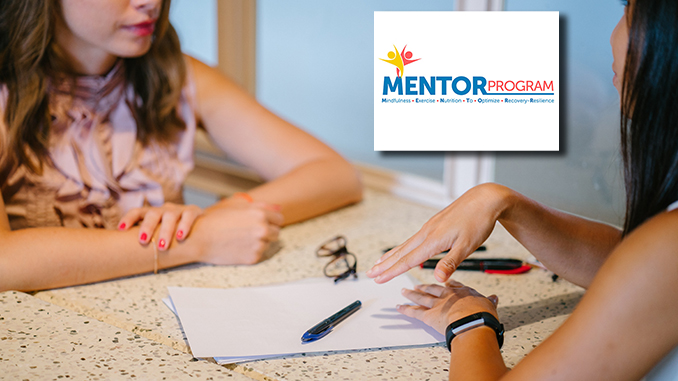
The University of Alabama at Birmingham School of Health Professions and the Lakeshore Foundation has been selected to become part of the MENTOR rehabilitation-to-wellness program.
Published: February 5, 2021
MENTOR, or Mindfulness, Exercise and Nutrition To Optimize Recovery and Resilience, was established to bridge the gap between rehabilitation and wellness for individuals who have been recently hospitalized, are receiving inpatient or outpatient rehabilitation for treatment related to a recently acquired disability or diagnosis, or are receiving care for a secondary health condition associated with an existing disability.
MENTOR is considered a “starter” wellness program for patients transitioning out of rehabilitation/health care who need a specific set of wellness activities they can practice at home, as an extension of their rehabilitation or shortly after their rehabilitation has ended. The program offers patients the opportunity to work with a health coach to assist them in improving and self-managing their health. MENTOR’s holistic approach is aimed at restoring, improving, and protecting health across the individual’s lifespan.
“Many people in Alabama have minimal access to a wellness program,” says James Rimmer, Ph.D., director, UAB/Lakeshore Research Collaborative and Lakeshore Foundation Endowed Chair in Health Promotion and Rehabilitation Sciences. “We look at this as a push/pull program, where we want people ‘pulled’ out of their home by community providers who develop inclusive and accessible pathways to wellness and encourage people with disabilities and chronic health conditions to be active participants in self-managing their health; but during the COVID-19 pandemic when people are socially distancing, we’re ‘pushing’ MENTOR online in the comfort of their home.”
The MENTOR program addresses the existing gap in the continuity of care for patients with disabilities as they transition through the stages of medical treatment, rehabilitation, and self-managed wellness. The three target groups are:
- Individuals who have recently acquired a disability (e.g., up to two years post-disability)
- Individuals who have recently been diagnosed with a health condition that is likely to result in a disability (e.g., multiple sclerosis, ALS, Parkinson’s disease)
- Individuals with an existing disability who have recently accessed the health care system for treatment of a new secondary health condition (e.g., pain, infection, depression)
The intent of the program is to help participants increase healthy behaviors, reduce stress and anxiety through mindfulness, prevent health issues through self-care skills, build healthy relationships with family and friends, and more.
Components of exercise, nutrition and mindfulness are implemented as hands-on classes through videoconferencing. Participants are provided grocery delivery, exercise supplies, and a tablet (if they do not have access to a computer) for the virtual components, and although the COVID-19 pandemic has forced many of these normally in-person components to be strictly virtual, Amanda Jeter, project coordinator with the UAB/Lakeshore Research Collaborative, says they have an opportunity to reach a wider range of people at one time.
“Originally, we wanted to do a lot of on-site things for our participants,” Jeter says. “For instance, our nutrition components would originally allow for only 10 people at a time in-person; but now since we are able to do things virtually, we can accommodate 30 to 40 at one time.”
MENTOR also works with five other sites across the United States in Atlanta, Chicago, New York, Denver, and Boston.
Other partners include the UAB Department of Physical Medicine and Rehabilitation, Department of Neurology, and the Tanner Center.
The UAB/Lakeshore Research Collaborative focuses on research in applied health and rehabilitation science, including the development and evaluation of new programmatic and service efforts, and the development and validation of new supportive technologies, and seeks to identify and develop meaningful alternatives that improve life for people who have or will experience a disability or chronic health condition.
MENTOR is funded by the Centers for Disease Control and Prevention.
To learn more, call 205-403-5526.
